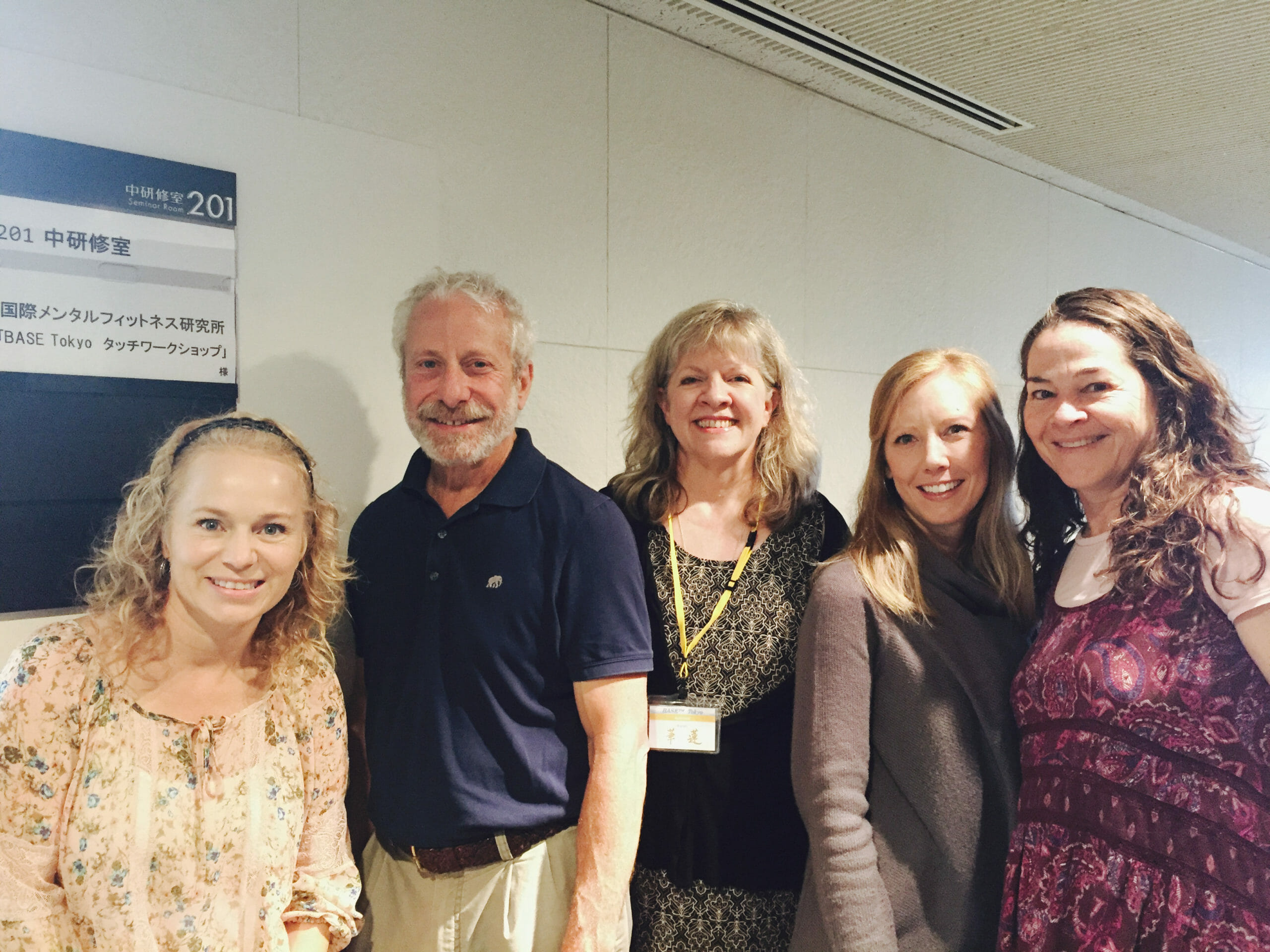BASE
Relational Bodywork
CUTTING-EDGE TRAUMA RESOLUTION WORK
“There is a voice that doesn’t use words, Listen” ~Rumi
Working to Help Clients Through Traumatic Stress, Chronic Pain, Relational Trauma
Relational Bodywork and Somatic Education™ (BASE™) is body-oriented approach that can be used by psychotherapists to help clients overcome the effects of trauma using relational touch, movement and somatically-oriented interventions. BASE™ is founded on two primary pillars: First, the relational dynamics between the practitioner and the client. Like the physiological conversation an infant and parent have, the practitioner’s refined attuned touch supports a client in feeling met and ‘heard’. This is accomplished via the second primary pillar—refined, attuned finessed touch of organs, structures of the body to support them in coming back into flow, ease and motility when a trauma response has maintained dysregulation.
This training program helps trauma practitioners improve their ability to track non-verbal communication, embodied emotions, and anatomy/body usage as they relate to trauma healing. Clinicians will learn to assess how touch may be used to support clients when it is appropriate to do so. BASE™ provides clinicians with a versatile toolkit to use with individuals, couples, and families.
Psychological and emotional processes manifest physically through the physiology, structures and usage of the body. Sensory feedback of the bones, muscles, fascia and organs/viscera (i.e., interoception) provides information about our emotional state of being. That is, does the body signal alarm and arousal or safety and calm (neuroception)? If interoceptive systems signal discomfort, pain or distress, a person may enter into and stay in a heightened state of arousal or activation through a self-perpetuating positive feedback loop. This can result in intrapersonal challenges, relationship, work and educational problems, chronic pain, headaches, gastrointestinal problems, sleep issues, feeling detached, anxiety, PTSD and other difficulties.
The emotional, physical, and physiological distress described above may stem from a variety of challenges, including: pre and perinatal difficulties, attachment insecurity or disorganization, physical injury, sexual assault, emotionally toxic relational or societal factors, natural disasters, car accidents, surgery/anesthesia, suffocation, and other threatening circumstances.
Somatic psychotherapy and relational bodywork are essential for interrupting and changing this positive feedback loop and healing trauma. BASE™ practitioners who work with clients suffering from these conditions will have a greater sensitivity to follow or track what is happening in a client’s body and WHERE it is happening. Clinicians learn to refine attunement capacity and skill in specifically identifying activation/constriction in a client’s intrapersonal experience (i.e., the persons body). BASE™ practitioners know how to release this freeze/shutdown allowing expansion, capacity and ease. A new set of afferent information (‘interoceptive’ self) or body ego state develops to inform the brain. This can allow for greater resilience and choice—the opposite of a trauma response.
The body’s holding of psychological trauma, and its importance as the vehicle for healing is now broadly recognized in academic and clinical settings and in research. Therefore, learning how to work with the body enhances skilled intervention. BASE™ Training for trauma practitioners addresses this in two ways. First, non-touch somatic learning/body awareness strategies are used as tools for effective assessment. Second, for psychotherapists interested in adding hands-on work to their practices (from supportive touch on a client’s shoulder, to helping release freeze or shock in specific tissues, and body structures), this training will help clinicians become skilled in somatic (body centered) therapy. Bodyworkers and movement educators will learn how to refine and expand their hands-on work with a paradigm that addresses slowly expanding a client’s capacity for flow and ease without cathartic overwhelm.
BASE™ is recognized by the United States Association of Body Psychotherapy (USABP) as on of its official touch modalities.
BASE™ brings two related aspects of somatic work together:
1. somatic education, learning from the inside through kinesthetic sense of self.
2. working directly with skilled touch to facilitate and allow change of dysregulation in body tissues, organs and structures.
Growing evidence shows the importance of touch in healing from developmental and shock trauma. Touch gives an infant the physical feedback of its existence. Healthy physical contact supports healthy emotional connection for lifelong resilient attachment and bonding. When disrupted by developmental wounding, illness or shock trauma, or when insufficient for healthy bonding the infant can grow into a child, adolescent and adult in physical and/or relational dysregulation and freeze/dissociation. Appropriate touch also supports and promotes healing of physical structures in the anatomy that impact a person’s life because of pain and/or movement difficulties. (This is different that ‘fixing’ a physical therapist or chiropractor may do)
* This is a condensed excerpt about BASE written by the founder of the the therapy, Dave Berger. Obtained from DaveBerger.net/base. Posted with permission. To read more click on the link below.
Japan
In 2019, I had the honor of assisting the BASE training in Japan. Working with the Japanese people was truly an amazing gift. Being part of a talented assistant team with such gifted practitioners from across the U.S. was also an experience I will not soon forget. Click on the names below to visit their websites
Pictured left to right:
Dawn Angel Averitt, LMT, SEP, NMP
Amanda Huffman, LCSWS, MDiv, SEP
Pamela Stokes, founder of Mindful Motion
AMANDA HUFFMAN, LCSWS, MDiv, SEP
Psychotherapist, Somatic Experiencing Practioner, BASE Practioner, Integrative Nutrition Health Coach
